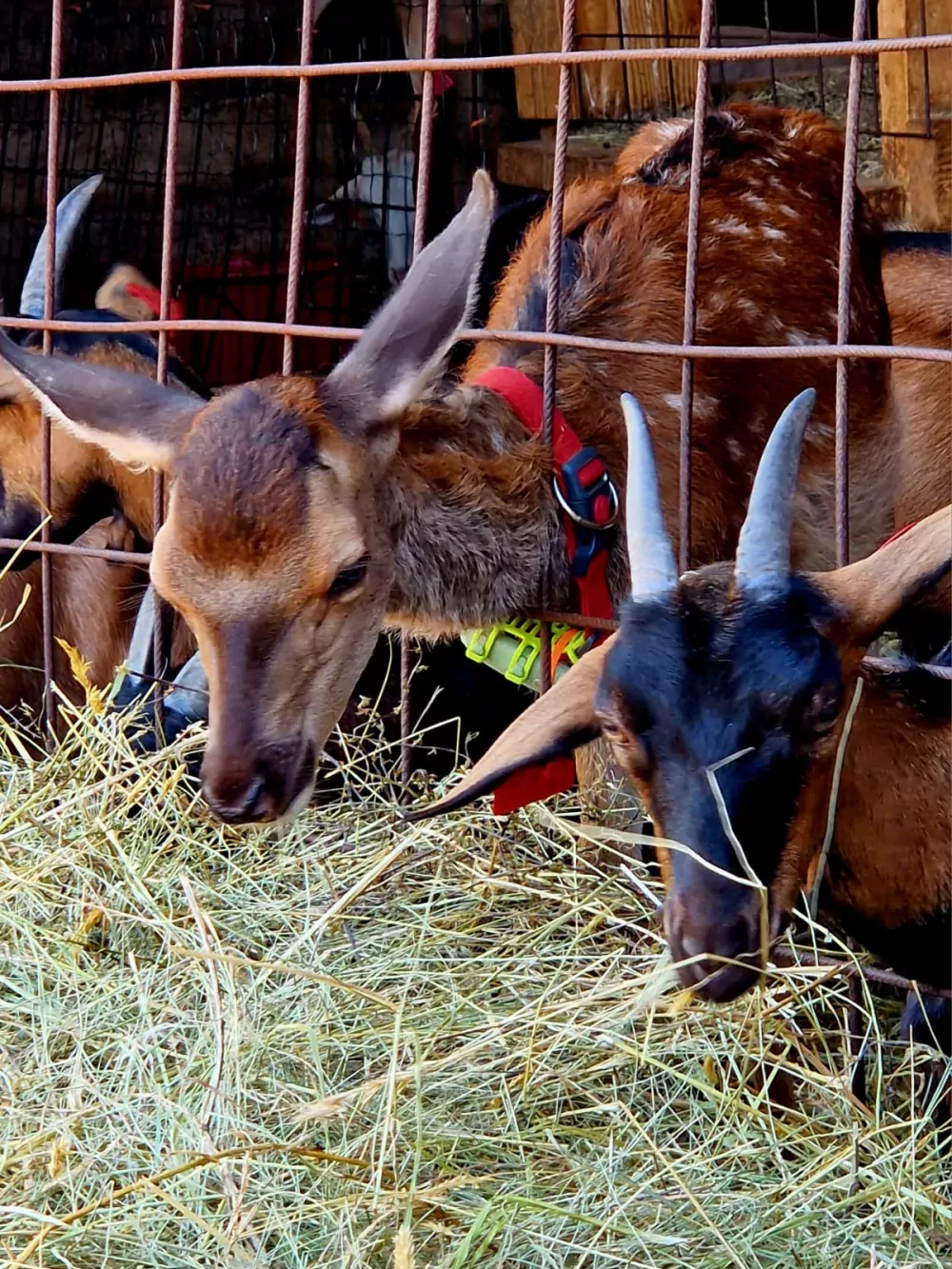Food market fieldwork
Described by Júlia Tena Mensa (author of this practice)Description
|
Context: who/when/where
|
Who: Me When: Every Tuesday for 5 months Where: In a parking lot |
|
Description:
|
One of the most common practices in the alternative network of food acquisition in Zagreb are pop-up markets. Pop-up markets are the moment where producers and consumers gather in a public space to deliver and pick up pre-ordered boxes of food. In other words, it functions as a short supply chain. Due to my personal interest, I became part of the consumers group to purchase my weekly food through this network. Therefore, I not only attended the market as part of my research work, but also as part of my food acquisition practices. In this way, I could enter the field of practice as a consumer of the pop-up markets. This not only meant remembering to pre-order the food at the weekend and making the time available to attend the meetings at the parking spot at 17:30 on Tuesday, but also re-scheduling and re-organising my food practice according to the food available that week and the timing of the market. By doing this, I could have informal conversations with producers, other consumers, and the organiser of the pop-up market. Moreover, I could see the relationship between these different actors and take part in it as one of them. |
|
Extra: |
|
|
Engagement/link with more-than-human entities/discourse |
The urban environment where these pop-up markets were held did not give the time and opportunity to engage with the more-than-human. However, this does not mean that interaction did not happen at all; It did not happen in the food acquisition, but in the food preparation. As the main producers participating in these markets are small, they do not have the time to leave the vegetables without the imprint of where they come from. While the vegetables in the supermarket will often shine and even be packed in plastic bags ready to be used, the consumers using the vegetables in the pop-up markets are in contact with soil, dirt and very often with the little bites that insects or worms left behind. This is not a negative cooking experience, but a reminder of the trust you put in the producers making your food: if somebody ate that salad leaf before, it only means it is good! |
|
Interpretation as “retracing”, that is what we can learn from these activities when we think about data generation/collection for our own research (aka advancement in data collection in PD/generally) |
Becoming a consumer at one of the data collection sites enabled me to play a dual role as a researcher and a real consumer. Engaging in the food practices of consumers in the pop-up markets made me more aware of the practices producers engage in relation to alternative food networks. This helped me gain a better understanding of the context and the selling channels of producers discussed in the interviews. Re-tracing in this case meant becoming part of the field through the basic need of food acquisition. Even though my role as a researcher never disappeared, in the pop-up markets I was one of the other consumers gathering their food for the week. |
|
Advancement to PD (under at least one of the headings: re-tracing, reconnecting, re-imagining, re-institutioning). |
In my method, becoming part of the consumer group meant re-tracing, but as a practice, pop-up markets contributed to re-connecting and re-institutioning. Re-connecting was implemented by gathering several actors in one place, but the informal character of economic activity fostered relationships based on trust and friendship. These relationships also contributed to re-institutioning to question which types of relationships articulate new ways of selling and purchasing food. |
|
Sample, extract, case study, or description. |
GSR Jato is one of the short food supply chains that manifest through weekly pop-up markets on Tuesdays. The association has been running for more than 10 years, with the energy, time and resources of the main organisers. They not only organise the weekly markets, but they also manage the platform where the producers can upload their quantities and prices, and consumers can pre-order the food they want. Also, for the ones who can not come to pick up the food on Tuesday, they organise a home-food delivery. Food deliveries are an interesting activity to be part of, as I have the opportunity at the beginning of my fieldwork. Accompanying one of the main organisers of the association, I spent one entire afternoon delivering food around certain areas of Zagreb. But these areas were not randomly selected. The organisers, with some help from the farmers participating in the association, divide the city into different parts, and during specific days of the week, they will be in charge of delivering the food to the people's houses who have asked for it. In the afternoon, we visited several neighbours and houses. In only that time, I could see the long-lasting relationships the organiser and the families kept together. Also, another important aspect of these deliveries was the possibility to give back the glass container where juices, yoghurts, or milk were given the previous week. The organiser, then, gives the empty pots back to the specific producer, allowing the reuse of these. Moreover, the association organises several field trips to the farms of the producers taking part in the associations. The consumers are invited to come, and they are able to chat to the producer, see the methods of productions and participate in diverse activities organised. |
